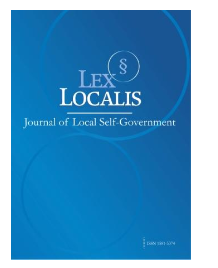INTEGRATING COMPENSATION MANAGEMENT AND JOB AUTONOMY TO IMPROVE RETENTION IN THE GIG AND DELIVERY SECTOR
DOI:
https://doi.org/10.52152/802045Keywords:
The gig economy has emerged as one of the most significant labor market transformations in recent decades, particularly in urban delivery services where food platforms such as Zomato, Swiggy, Blinkit, and Zepto dominate.Abstract
The gig economy has emerged as one of the most significant labor market transformations in recent decades, particularly in urban delivery services where food platforms such as Zomato, Swiggy, Blinkit, and Zepto dominate. While such platforms provide flexible work and income opportunities, they are equally characterized by high attrition and precarious employment conditions. Classical theories of motivation and retention emphasize the role of compensation in sustaining workforce stability; however, emerging evidence from gig work suggests that monetary incentives alone may not be sufficient to retain workers in algorithmically managed environments. Drawing on Herzberg’s Two-Factor Theory, Self-Determination Theory, and the Job Demands–Resources (JD-R) model, this study examines the integrated role of compensation management and job autonomy in influencing employee retention. Using structural equation modeling on survey data from 365 delivery workers, the study finds that compensation elements such as pay, incentives, and allowances exert no direct effect on retention, contradicting earlier organizational research. Instead, job autonomy strongly predicts retention and mediates the relationship between compensation and commitment, while adverse weather conditions erode autonomy and indirectly undermine retention. These findings extend existing motivational frameworks by demonstrating that in algorithmically governed labor markets, compensation enhances retention only when accompanied by genuine autonomy within contextual boundaries. The paper makes theoretical contributions by reframing autonomy as the critical mediator of compensation–retention linkages and offers practical insights for designing sustainable platform policies.
Downloads
Published
Issue
Section
License
Copyright (c) 2025 Lex localis - Journal of Local Self-Government

This work is licensed under a Creative Commons Attribution-NonCommercial-NoDerivatives 4.0 International License.








